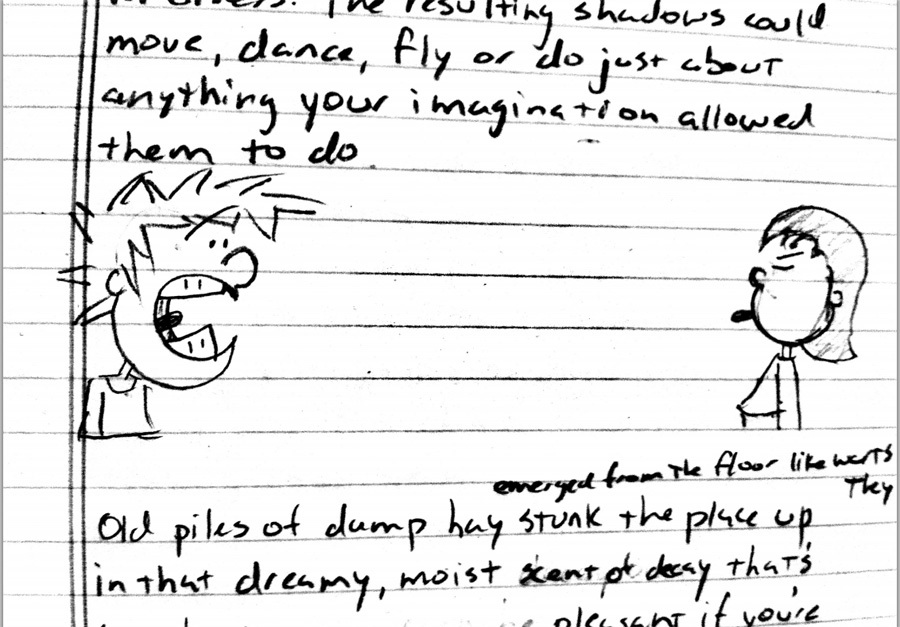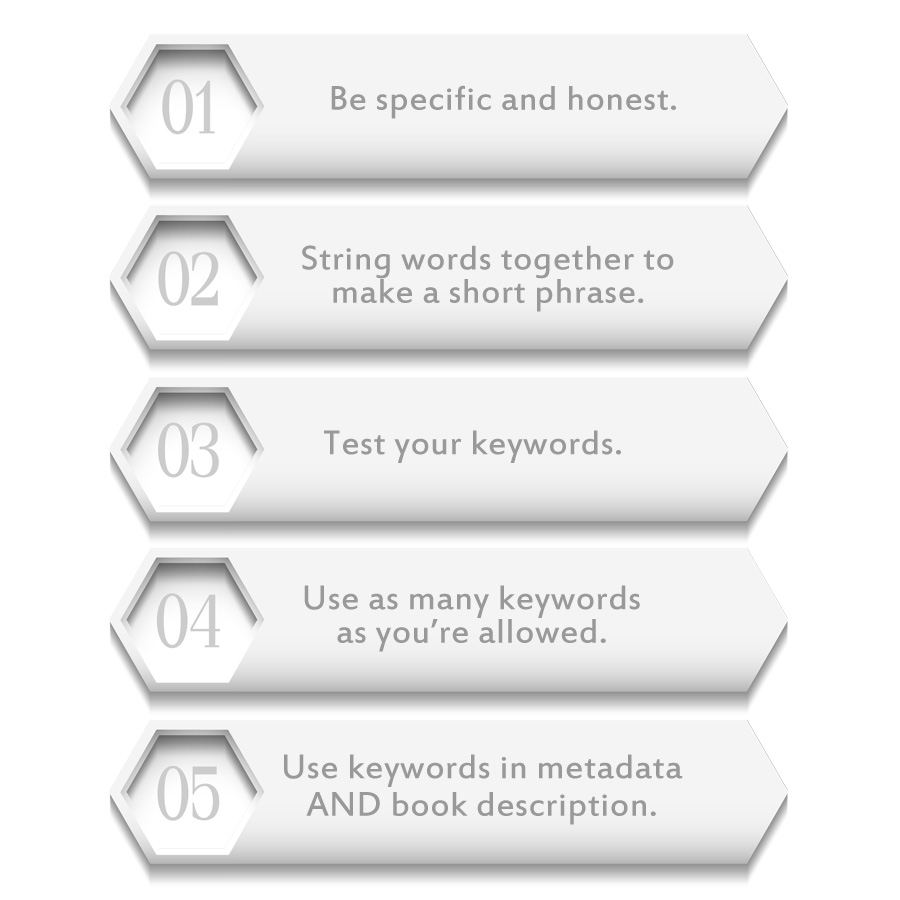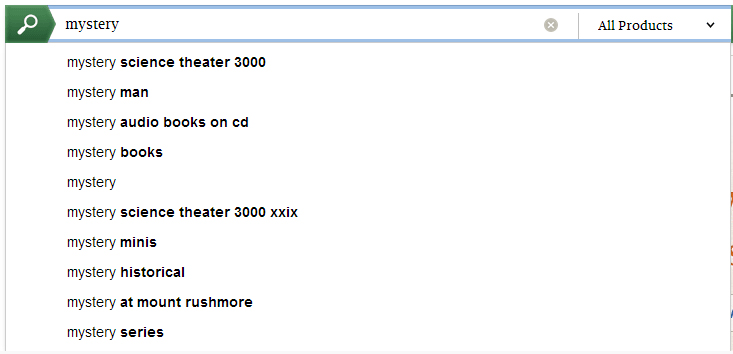
by Ben Zackheim | Jun 19, 2014 | Writing |
How to price your ebook can be a tough decision.
Which is surprising since there aren’t many standard price points to choose from!
$.99 – $9.99
That can be broken down in fifty cent increments or one dollar increments. ($1.49, $1.99, $2.49, etc.)
Sure, you could charge $1.27, or $6.73, but price points like that tend to make customers think they’re buying a used item.
So with a max of 19 prices, how do you price your ebook?
What does the competition charge?
Get a clear picture of what people expect to pay for your kind of story.The best place to start is to look at what the competition charges in the Top 20, then price-match the books that you’d like to compete with.
For those of us who write in those annoying little gray areas where it’s tough to find the competition… well… we need to dig a little deeper to find good facts to work from.
My Shirley Link mystery series for Middle Grade to Young Adult is a perfect example. Not many indys write in this specific category, which makes it hard to price match with competitors. I’ve found that most people just won’t pay a Nancy Drew price for an indy book.
Not enough competition to price-match? Try, and try again!
After a lot of trial and error, I’ve settled on my latest pricing strategy of:
Shirley Link & The Safe Case (#1): FREE
Shirley Link & The Hot Comic (#2): $.99
Shirley Link & The Treasure Chest (#3): $2.49
Shirley Link & Black Cat (#4): $2.99
It’s a cross between the pricing strategy of Romance ebooks and Kids ebooks. Start free, make #2 cheap, then crawl up to $2.99, where I can start to make some good money.
Frankly, it’s been a tough road to find the right price for Shirley Link! But I’m definitely getting closer as I try different prices and roll out new books.
Should I go free?
Perma-free is the term we use to describe a book that is free “forever.” Many series authors make the first book in the series free because it helps increase visibility. Going perma-free, when done right, can mean higher sales for the rest of your series.
If you write a series, then do the following to decide if you should go perma-free on Amazon.
1) Do 3 Free Promo Days with book #1.
2) Measure the sales of the entire series post-promo.
3) Answer this question: If your entire series did this well all the time would you be happy? If the answer is yes, then ask a follow-up question. Would you be happy if your series did half as well all the time? If the answer to that is yes then make the first book perma-free. Why? Because the book is strong enough to act as a good entry-point for your entire series. So it’s likely that it will drive satisfying sales. If the answer to either question is no, then perma-free is probably not for you.
If your free book doesn’t rocket readers into your other books, then permafree is not a good pricing strategy.
The bottom line is this: your audience will send strong signals if your price is wrong. For instance, if you see slow sales after a successful free promo day on Amazon, then one reason could be the price point. “But I charge one buck for my ebook!” you might say.
The problem could still be with your price.
Your price may be too low.
Try jacking it up 50 cents. Yes, really. It worked for my third Shirley Link book.
One last tip is to reach out to fans. Ask them what they think the book is worth. Your readers can offer some keen insights on topics ranging from pricing to book description to, of course, story content!
How did you decide the price for your ebook? Do you experiment a lot, too?
Check out my post on how to make your book free on Amazon.
by Ben Zackheim
You may also like:
Prepare your book for its KDP Select free promotion days
Amazon KDP Select has a bridge to sell you! No, really.
The $11 Million question: Is KDP Select worth it?
Want to do more research on pricing your book? Here’s some good reading:
Smashwords survey
PBS
Nick Stephenson (with nifty graphs!)
—-

by Ben Zackheim | Jun 18, 2014 | Writing |

Tommy told her to stay away from the edge seven times. But Beth didn’t listen. He couldn’t very well stop her from being a fool when she was clear on the other side of the barn, could he?
“Mom told you to be careful,” he repeated. Usually, using the “M” word was the only thing that could make her listen. Many moms can make us behave with just a faint warning from the past. Tommy and Beth’s mom was most definitely that kind of mom.
But Beth wasn’t like you or me. Beth was, and still is frankly, a misbehaver from toe to hairtip.
Tommy, too, was no sample of sweetness, and frankly still isn’t, but he fancied himself packed with sense. Or, as he liked to call it, Sensibles — because that made him sound blessed by spirits.
They were in the barn that Mom told them to stay clear of. They were doing things Mom told them not to do inside the barn (the one that she told them not to be in). All in all, it was a disaster waiting to happen.
The roof, as it was, wore more holes than Mrs. Whisker’s swiss cheese. Sunlight poured into some areas of the barn, and not at all in others. The resulting shadows could move, dance, fly or do just about anything else your imagination allowed them to do.
Old piles of damp hay emerged from the floor like warts. They stunk the place up in that dreamy, moist cloud of decay that’s somehow pleasant if you’re in the mood to enjoy it.
So, inside this nest of wretchedness, Beth fell from the second floor.
It was a short fall, as most falls are. But Beth’s brain, being a rocket, managed to pack a lifetime inside three seconds.
When she first lost her balance and her right foot didn’t feel the floor in that special way it does when we’re grounded, she thought, “I wonder if my funeral will be sunny.”
She saw her parents sobbing. Her little casket perched above a hole in the ground in such a way that it could be shoved off its pedestal and slid straight down into the Earth.
She spotted Tommy playing her Nintendo DS while the priest spoke about what happens to girls who don’t listen to their mothers. Tommy winked at her, which meant he knew she was watching her own funeral. Then he dove back in to try to beat her high score in MarioKart.
By the time she was pondering the barn from an angle she’d never considered before, namely upside down while twirling, her thoughts had turned to the barn.
It upset her, as she fell to her death, that they would likely respond to her accident by tearing the old place down. Which would hardly be a reasonable way to face such a tragedy!
After all, if one girl could die in an abandoned building at any time then couldn’t all empty buildings be killers-in-waiting? Why not tear all of them down? The barns, the warehouses, the schools…
School.
That’s where Beth’s head settled as she saw the ground below her get significantly closer at a good clip. She wouldn’t really miss school. Not only because she’d be dead and wouldn’t be around to miss it; but also because school was her least favorite way to measure the day:
Meeting
Math
Reading
Lunch
Science
Goals
Pick up
Then, weekends:
Play
Read
Play
Jump in mud
Read
Eat whatever
Hit Tommy
Read
Play
Dinner!
That’s a thousand times better than any school day, even one with a substitute teacher.
She caught a glimpse of Tommy the moment she hit the ground. He was yelling something. Probably, “AAAAAAAAAAAAAAAAAAAAAAH!”
Beth felt bad for her brother. He’d probably feel guilty when she was gone. He might not even play video games for three whole days. Okay, maybe more like two days. But still, their parents would…
Oh no!
Would they blame him? Would they blame Tommy? Would it be like the time Tommy let the dog out by accident and she got caught in the fence?
They wouldn’t!
They might.
So Beth did what any other sister would do in her situation. She hit the ground hard. But as she hit the ground hard, she thought, “How strong are these floorboards anyways?” And, as if to say, “We’re not very strong at all, Beth,” the floorboards cracked under her butt, dropping her straight into a muddy soup below the barn.
Time slowed down to normal, as did Beth’s brain. Or what passed for normal, as there was almost nothing normal about what had just happened.
Tommy was still hollering above her, his fingers clenching his hair. Finally, he managed, “ARE YOU OKAY?”
“I think so,” Beth said, a little short of breath.
She didn’t really hurt anywhere at first. But later on, when the excitement had died down, she found a large splinter in the back of her leg. The scar would always be there to remind her to mind her brother.
On the long walk home they decided to keep the whole thing to themselves. Most parents will grimace at such a decision, but tough luck. The brother and sister had a secret and it welded them together in all the ways brothers and sisters should weld.
“Did your life flash before your eyes?” Tommy asked as they walked up the steps to their back porch.
“No, but the future did. And I’m having none of it.”
That, Beth thought, will be my secret for me, myself and I.

by Ben Zackheim | May 29, 2014 | Digital Identity, Writing |
NOTE: In the coming months I’m going to write about how we present ourselves online. Digital ID, as I call it, is the sum of:
After two decades of doing business online, I’ve realized that we must know who we are offline to establish the strongest Digital ID. I’ll set out to prove that thesis in my articles.
We’re all learning how to maneuver this wonderful, liberating mess together! So I look forward to hearing this community’s opinions.
—
I like the image above because it’s how I feel when I wake up in the morning and put on my marketing cap and get on Facebook. I feel like I’m immersed in a pool of people, some of us connected, some of us not, some of us wanting to be connected, some of us not. And I think it’s important to recognize that mess. I think understanding how messy things are makes it easier to understand how we feel about establishing a digital ID. And, just as importantly, what we need to do to set up our own Digital ID.
What do I mean by that?
Here’s my best explanation: I’m a strong believer in the independent storyteller’s power. Not just the power of moving people to think and act and feel, but the power to find an audience on your own that you can tell your story to.
The Slow, Agonizing, Delightful Death of the Gatekeeper
For a long time, storytellers have been ruled by gatekeepers who got to tell us, “That story is good enough and worth this much. But that one sucks and good luck!”
Those days are coming to an end.
And how do I know this?
Because I was a gatekeeper.
I told some brilliant people that their stuff wouldn’t make it in today’s market. Sometimes I was right, sometimes wrong. But the powerful emotions I felt when I saw some of them move on and do great things were undeniable.
I wasn’t regretful.
I wasn’t envious.
I was inspired.
I saw them leveraging brand new tools, online services, ways of connecting that no one had thought of. They found their audience without Viacom, ESPN, AOL, Sony and all those other places where I worked.
Those gatekeepers were wrong.
I was wrong.
For my part, I had enough confidence in my own writing talent to strike out and try this new world on for size myself.
Now, the jury is still out on whether that was a good idea. While I’m doing great, I’m not making a living wage at writing my books. But I like the trajectory and I love the process. The freedom is exhilarating.
And it’s messy. Like this post’s image.
So what does this mean for working artists?
We’re living through a fundamental shift in how people learn about us and how we learn about them. As a writer looking for an audience I know in my heart that I’ll find my readers only if I stay true to myself.
To be clear, I find the incredibly detailed tracking of people by big companies creepy. I don’t trust them with the information. The counterpoint is that most of them are sharing that data with everyone. Some charge (like FB) and some don’t (like Google). Does that make it okay? I don’t know the answer to that.
I do know that I can go online and have a universe of data on my target audience at my fingertips. If I work hard, stay true to myself and my work, I can reach them and I can make a living telling my stories. The sacrifice I make is that my interests, preferences, friends and behavior is also thrown into this messy pool of data — slicing my identity into little pieces for another artist or writer or entrepreneur to scour through and evaluate.
[Tweet "I'm a data point for someone else. And they're mine."]
It’s a fascinating, liberating, terrifying time. And I’m delighted to be a part of the mess every single day.
by Ben Zackheim | May 28, 2014 | Book Promotion, Sell your book |

What are keywords? They’re the words you use to describe your book. Sometimes you’ll hear them called keyword phrases, but that just means keywords that are more than one word long. For example, “hero” is a keyword and “android hero” is a keyword phrase.
Amazon asks for keywords.
BN.com asks for keywords.
In fact, every site with media wants them.
But why is it so important to find keywords for your book?
Keywords are a primary way for a store to understand what your book is about. When you give your book a keyword, you’re giving it an identity. After all, “detective” paints a different picture in your head than “cooking.” Keywords are beacons, pings, scents that get picked up by search engines, recommendation bots and, oh yeah… readers.
Keywords are like perfume. If chosen wisely, they make your book more attractive to the right folks. The kind of folks who are so totally into you (and your book).
So how do you find keywords to use for your book?
How do you find keywords that will help your book get visible on the online stores?
1) Be specific and be honest.
Use words that truly describe your book, not what you think will be popular.
And when you choose the keywords, use specific terms like “android hero” instead of “hero”. This will help the book get spotted by folks with specific tastes.
2) String a couple of words together to make a short, clear phrase.
So use “mystery series for kids 9-12” instead of just “kids mystery”. These keyword terms will map well with what customers actually type into the search bar when they’re looking for a book.
Use keywords in the same way a customer would use them. Example: sleuth mysteries, not mysteries sleuth
3) Test your keywords.
Go to the online bookstores where you sell your book.
Type in one of the words you chose for your book. Notice the window that drops down?

Those are suggestions for readers to make their search easier. But it’s also list of suggestions for authors trying to find keywords for their book!
Here’s how.
Scan the list of terms in that drop-down menu. Click on the first one that truly applies to your book. Do you like the results you see for that term? Do those books look like your competition? Then use that term! It applies to your book and it’s popular enough to appear in the drop-down menu — so go for it.
4) On Amazon, be sure to use all seven keywords or short phrases.
Separate them by a comma.
5) Be sure to use your keywords in the book metadata AND in the book description.
If the scent fits, then wear it everywhere! The more you use appropriate keywords on your book’s sales page, the better your chances of connecting to the right customer.
Keep these five tips in mind while you’re prepping your book for sale. You can also follow these tips if you want to find keywords for your existing books. I’ve seen Shirley Link & The Safe Case climb up two popular lists on Amazon just by tweaking the keywords after launch.
Good luck! It can be tough to find keywords for your book that work well. But as Amazon says, “To increase your book’s discoverability on Amazon, you need descriptions and keywords that accurately portray your book’s content and use the words customers will use when they search. Along with factors like sales history and Amazon Best Sellers Rank, relevant keywords can boost your placement in search results on Amazon.com. ”
You can’t be everything to everybody. That’s a recipe for failure. So choose your scent and find your book lovers!
Other writer’s advice on how to find keywords for books:
KDP Forum Post
Lindsay Buroker
The Metanautics Department (some interesting thoughts on using Google’s keyword tool to recognize term popularity in the general population)
By Ben Zackheim
You might also like:
How to write an author bio that sells books
Choose the best genre for your book on Amazon

by Ben Zackheim | May 26, 2014 | Writing |
He used a pencil to say goodbye. Maybe that would make it less permanent. Words are only as strong as their intent and he didn’t want to leave.
His parents had once hinted that they knew the truth. But by the end of the day their heads were back in The Good Book — their eyes on everything but him.
So with a whisper he crafted his goodbye on paper.
He made the sentences sharp. His points were daggers. An eraser could make them go away. But he knew his parents wouldn’t see that.
“That’s why I have to go in the first place,” he thought.
And when he took his first step into the world as an honest man he felt fixed.
He’d left the note next to the TV. Burnable, tearable. Eraseable.
Maybe after they did all that, they’d remember he was just their son.
—
Stepping Out, With Pencil is a 150 word story that’s part of a series of short stories that I’m working on. I’m fascinated by the idea of crafting a tale with a tight restriction like this. It may seem arbitrary, but I’ve noticed something happens for me when I limit the word count to 150 words. I find that the stories end up being 150 words exactly.
Not 147, or 151.
150.
I’m not sure why this happens time and again, but when I finish the first draft I do not check the word count. I make my edits until I’m happy with the story and then I check. Every time but once the count has been 150 words. Naturally. No affectation.
I hope you enjoy the stories!
Other 150 word stories:
Bridge of Laughter
Bye Dad
Jungle Jim







